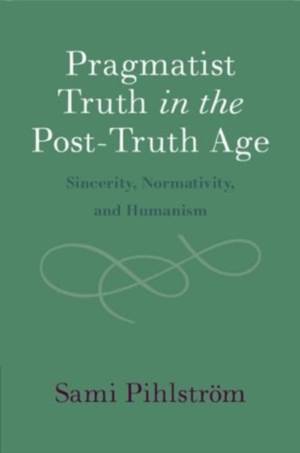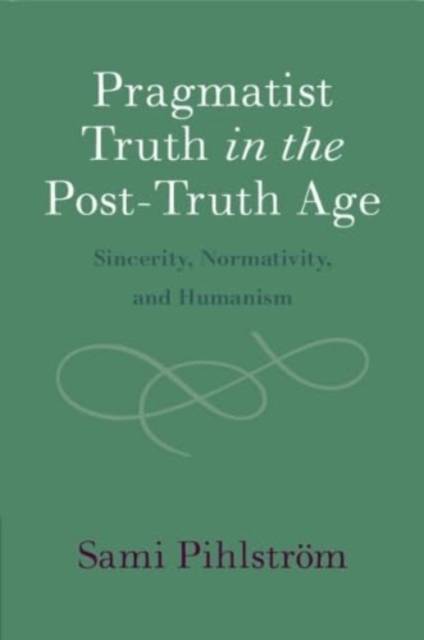
- Afhalen na 1 uur in een winkel met voorraad
- Gratis thuislevering in België vanaf € 30
- Ruim aanbod met 7 miljoen producten
- Afhalen na 1 uur in een winkel met voorraad
- Gratis thuislevering in België vanaf € 30
- Ruim aanbod met 7 miljoen producten
Zoeken
Pragmatist Truth in the Post-Truth Age
Sincerity, Normativity, and Humanism
Sami Pihlström
Paperback | Engels
€ 47,45
+ 94 punten
Uitvoering
Omschrijving
It is commonly believed that populist politics and social media pose a serious threat to our concept of truth. Philosophical pragmatists, who are typically thought to regard truth as merely that which is 'helpful' for us to believe, are sometimes blamed for providing the theoretical basis for the phenomenon of 'post-truth'. In this book, Sami Pihlström develops a pragmatist account of truth and truth-seeking based on the ideas of William James, and defends a thoroughly pragmatist view of humanism which gives space for a sincere search for truth. By elaborating on James's pragmatism and the 'will to believe' strategy in the philosophy of religion, Pihlström argues for a Kantian-inspired transcendental articulation of pragmatism that recognizes irreducible normativity as a constitutive feature of our practices of pursuing the truth. James himself thereby emerges as a deeply Kantian thinker.
Specificaties
Betrokkenen
- Auteur(s):
- Uitgeverij:
Inhoud
- Aantal bladzijden:
- 255
- Taal:
- Engels
Eigenschappen
- Productcode (EAN):
- 9781009048347
- Verschijningsdatum:
- 4/04/2024
- Uitvoering:
- Paperback
- Formaat:
- Trade paperback (VS)
- Afmetingen:
- 152 mm x 229 mm
- Gewicht:
- 344 g

Alleen bij Standaard Boekhandel
+ 94 punten op je klantenkaart van Standaard Boekhandel
Beoordelingen
We publiceren alleen reviews die voldoen aan de voorwaarden voor reviews. Bekijk onze voorwaarden voor reviews.











